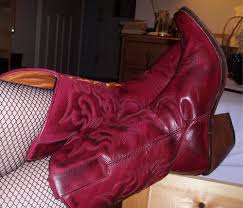
Tax Preparation Time
Keep Some Cash in Your Pocket
Since it’s April, let’s talk taxes. I know it’s a painful topic. I’d rather clean the toilet than prepare tax information to send to my accountant. So I’ll get the bad news over first. It’s no surprise that if you earn money from your writing, you owe taxes on it. But did you know you also owe a self-employment tax? If you’re in the 15% tax bracket and you get paid a $2,500 advance on your new book, you owe $375 in income tax. If that isn’t bad enough, you also owe a self-employment tax of 15.3%, which is $382.50. That means after you pay taxes on your advance, you’re left with $1742.50. (Unless you’ve earned more than $127,000, for which there’s only a 2.9% self-employment tax-wow, I only need to sell about 125,000 more books to qualify!)
The good news is you can soften the income-tax hit by deducting some expenses, resulting in a bit more cash in your pocket.
Here are some of the more obvious deductions:
- Website domain registration fees, web hosting, and design software.
- Technical equipment, such as computer, printer, scanner, and photocopiers.
- Office supplies, such as paper, printer cartridge, pens, pencils, paperclips, sticky notes, etc. (My local office-supply store also sells Advil, an item I always keep in stock and list under miscellaneous expenses
- Software programs and subscription fees.
- Fees for writing conferences and writing classes you attend.
- Travel expenses associated with your writing (airfare, rental cars, hotel, and meals).
- Meals at conferences or meetings with clients.
- Advertising and promotional costs.
- Contract labor (hiring someone to design your website or edit your manuscript).
- Subscriptions and dues for writer organizations.
- Materials you purchase for research.
Since I’m on the subject of taxes, and I need to fill some space, I thought I’d mention other deductions and sales tax exemptions at the state level. These have nothing do to with the business of writing, but I find them amusing.
For example, Wisconsin has attempted to decrease the refuse in landfills by not charging parents sales tax if they buy cloth diapers for their babies. Disposable diapers are subject to sales taxes. And if you donate a dead deer to the poor in South Carolina, you get a $50 deduction from your state income taxes.
For example, Wisconsin has attempted to decrease the refuse in landfills by not charging parents sales tax if they buy cloth diapers for their babies. Disposable diapers are subject to sales taxes. And if you donate a dead deer to the poor in South Carolina, you get a $50 deduction from your state income taxes.
If you live in Hawaii and have an exceptional tree in your yard, you might be eligible for a $3,000 property-tax deduction.
If you’re in a deli or restaurant in New York City and order a bagel, uncut, untoasted, and without a schmear, you don’t have to pay the 8.75 sales tax. But if you want your bagel sliced, toasted, and dressed with a schmear, you’re taxed.
Neutering your cats and dogs in Durham County, North Carolina will save you $65.00 per pet on your personal property tax. Pet owners in this county are required to list their pets as personal property when filing their taxes. If Fido or Fluffy are still fertile, your tax is $75.00 per pet, if they’ve been fixed, it’s only $10.00.
Texans are allowed to buy boots, hats, and belts tax-free (buckles are taxed, however). This seems reasonable, especially since some Texans tend to be penny-pinching (me), heat-packing (not me) dudes. I just wish I’d known that when I bought my red cowboy boots at Macy’s in Washington State. I’ll admit they were on sale for only $15, but that’s not the point; 9.6 % saved on $15 still counts as money in my pocket.

But no matter which state you live in, your federal tax deductions are the same.


Hope this was helpful!